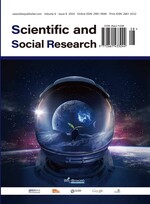Abstract
Since the 20th National Congress, Chinese urban intelligence has entered a new era of technological empowerment, with strong momentum in intelligent development, particularly reflected in the deep integration of digital technologies such as artificial intelligence and government management services. These technologies not only reshape the process and mode of government governance but also significantly enhance the scientificity of decision-making and service efficiency. In response to the challenges of insufficient data support capabilities and the need to improve the level of intelligence in smart city governance, this study focuses on the effective utilization of unstructured data, the construction and practice of urban knowledge graphs, and the scenario-based application of large-scale language models technology, and deeply analyze the solutions and impacts of artificial intelligence empowerment. Research has found that natural language processing of unstructured information in the field of government affairs can greatly enhance data value conversion and grasp public opinion and sentiment. At the same time, the urban economic knowledge graph serves as a comprehensive information framework, promoting the integration and insight of information in the urban economic field, and strengthening the management and forecasting capabilities of economic scenarios. In addition, large-scale language models will increasingly replace human operations in urban intelligent management, demonstrating their enormous potential in optimizing resource allocation.
References
Yao QY, Fan LL, 2022, Research Process and Hotspot Analysis of Government Digital Governance. Digital Library Forum, 2022(01): 52–58.
Wu D, Liu MY, 2023, Hotspot Analysis of Chinese Urban Governance Research Based on Knowledge Graph. Science and Industry, 23(18): 124–131.
Li NS, Yi XT, 2024, Resilient Urban Governance and its Optimization Path in the Era of Digital Intelligence. Journal of the Communist Party of China Fujian Provincial Party School (Fujian Administrative College), 2024(02): 99–108.
Liu T, 2021, Research on the Application of Digital Technology in Urban Governance. Safety, 42(11): 1–6 + 89.
Ming X, An XM, Song G, 2018, Research on Data Governance Framework in the Context of Smart Cities. E-Government, 2018(08): 27–37.
Du TX, Yan DR, 2024, Influencing Factors and Optimization Strategies of Digital Technology Empowering Urban Social Governance: A Configuration Analysis based on 31 Urban Government Hotline Cases. Journal of Southwest University for Ethnicities (Humanities and Social Sciences Edition), 45(01): 181–191.
Bao XY, 2023, Research on the Enhancement of Collaborative Capacity of 12345 Government Service Convenience Hotline in City A and Countermeasures, thesis, Jilin University.
Wang YQ, Luo YG, Hu SN, 2023, Visualization Analysis of Knowledge Graph in the Field of Data Governance Research in China. Journal of National Library of China, 32(05): 101–113.
Yang CL, Wu JP, 2023, Research on Data Elements and Hotspots: Analysis Based on Knowledge Graph. Productivity Research, 2023(09): 19–24.
Feng J, Qi YP, 2021, Application of Knowledge Graph in the Process of Smart City Governance. China’s National Conditions and Strength, 2021(07): 50–53.
Chen MJ, 2023, Application Scenarios and Business Solutions of Urban Super Brain Empowering Urban Governance. China Security, 2023(05): 74–76.
Yuan Y, Sun B, Yang Z, 2024, Exploration of Application Scenarios for Urban Governance Based on Large Models. Urban Management and Technology, 25(01): 59–62.
Huang XB, Wei JP, Pan GR, et al., 2023, Exploration and Practice of Artificial Intelligence in Digital Transformation of Urban Governance. Urban Management and Technology, 24(04): 78–80.
Huang QF, 2023, Digital Development Path and Governance Model of Cities in the Era of Artificial Intelligence. Urban Development, 2023(07): 106–109.
Gao FY, Meng HR, 2023, The Importance, Challenges, and Paths of Embedding Artificial Intelligence in Urban Governance. China Management Informatization, 26(18): 190–193.
